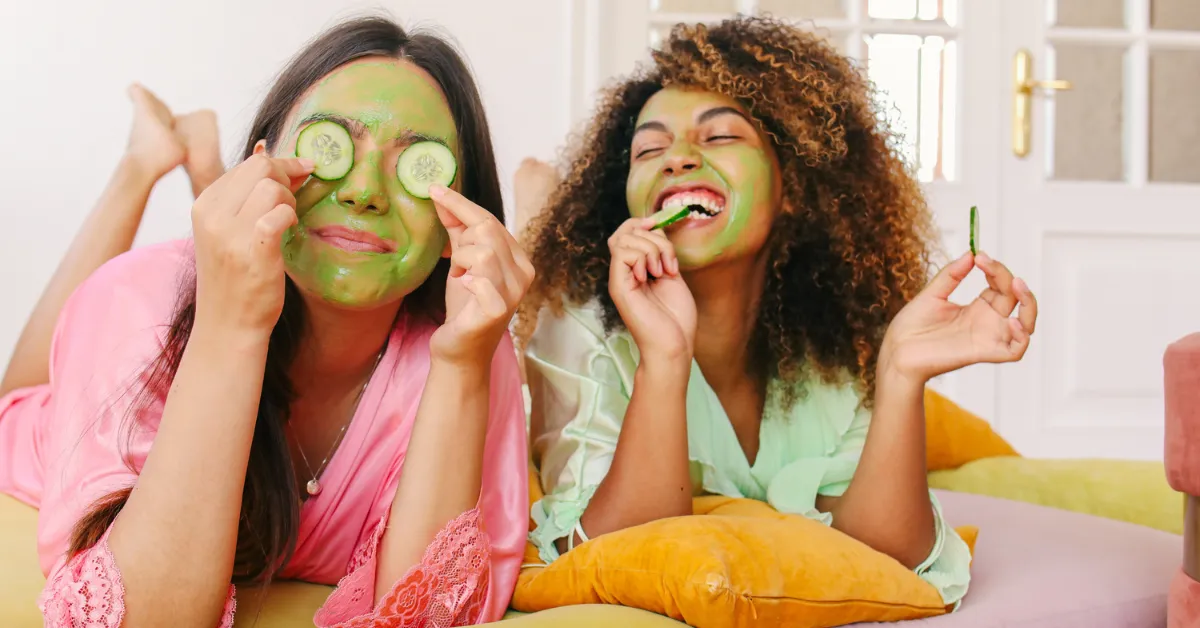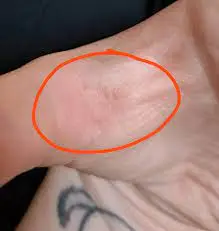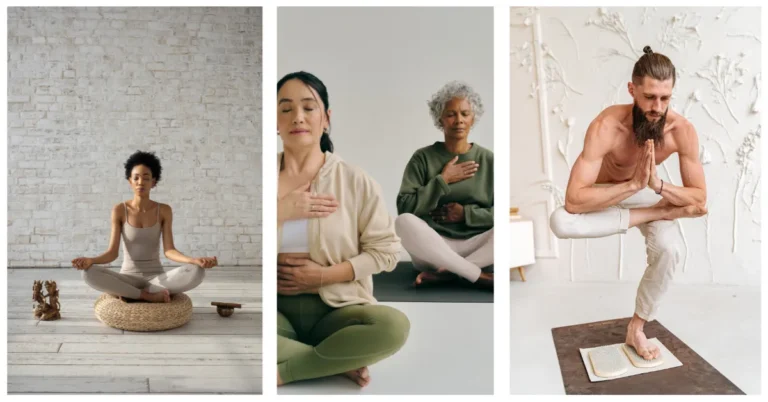The Art of Beauty Self-Care: Creating Your Perfect Wellness Routine
The Art of Beauty Self-Care. In our fast-paced world, the concept of beauty has evolved far beyond surface-level aesthetics. Today’s beauty self-care routine represents a holistic approach to wellness that nurtures both your skin and your soul. This transformation reflects a deeper understanding of how our mental, emotional, and physical well-being are interconnected, making self-care not just a luxury, but an essential practice for overall health.
The Science Behind Beauty and Wellness
Recent research has revealed fascinating connections between our beauty routines and mental health. Studies show that consistent skincare routines can reduce anxiety by up to 35%, making your daily ritual a powerful tool for mental well-being. This isn’t just about looking good—it’s about creating moments of mindfulness and self-compassion that ripple through every aspect of your life.
The practice of taking time for yourself through beauty rituals has been shown to reduce stress levels, improve sleep quality, and boost self-confidence. When we engage in these routines mindfully, we’re essentially practicing a form of meditation that grounds us in the present moment.
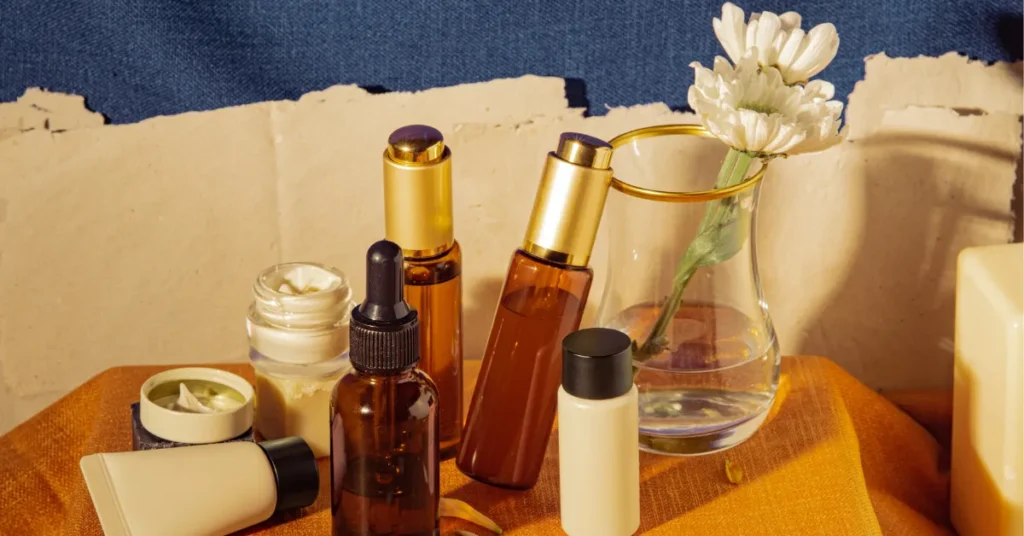
Building Your Foundation: The Essential Steps
Morning Ritual: Awakening Your Natural Radiance
Your morning beauty routine sets the tone for the entire day. According to dermatologists, an effective morning routine should follow this order: cleanser, toner, serum, moisturizer, and sunscreen. This sequence ensures that each product can penetrate effectively while building protective layers for your skin.
Step 1: Gentle Cleansing Start with a gentle cleanser that removes overnight impurities without stripping your skin’s natural moisture barrier. Choose formulations based on your skin type—gel cleansers for oily skin, cream cleansers for dry skin, and micellar water for sensitive skin.
Step 2: Hydrating Toner Modern toners have evolved from harsh, alcohol-based formulas to hydrating essences that prep your skin for subsequent products. Look for ingredients like hyaluronic acid, glycerin, or botanical extracts.
Step 3: Targeted Treatment This is where you address specific skin concerns with serums containing active ingredients like vitamin C for brightening, niacinamide for pore refinement, or peptides for anti-aging.
Step 4: Moisturizing Even oily skin needs hydration. Select a moisturizer that provides the right level of hydration without feeling heavy or greasy.
Step 5: Sun Protection Never skip SPF—it’s your most important anti-aging step. Choose broad-spectrum SPF 30 or higher for daily wear.
Evening Ritual: Restoration and Renewal
Your nighttime routine is when the real restoration happens. The evening sequence typically includes: makeup removal, cleansing, treatments (like retinol), and moisturizing or night cream.
Double Cleansing Start with an oil-based cleanser to remove makeup and sunscreen, followed by a water-based cleanser to address impurities and excess oil. This two-step process ensures your skin is thoroughly clean without over-stripping.
Treatment Time Evening is ideal for active ingredients like retinoids, AHA/BHA acids, or prescription treatments. These powerful ingredients work while you sleep to accelerate cell turnover and address specific concerns.
Deep Moisturizing Night creams are typically richer than day moisturizers, providing intensive hydration and supporting your skin’s natural repair processes during sleep.
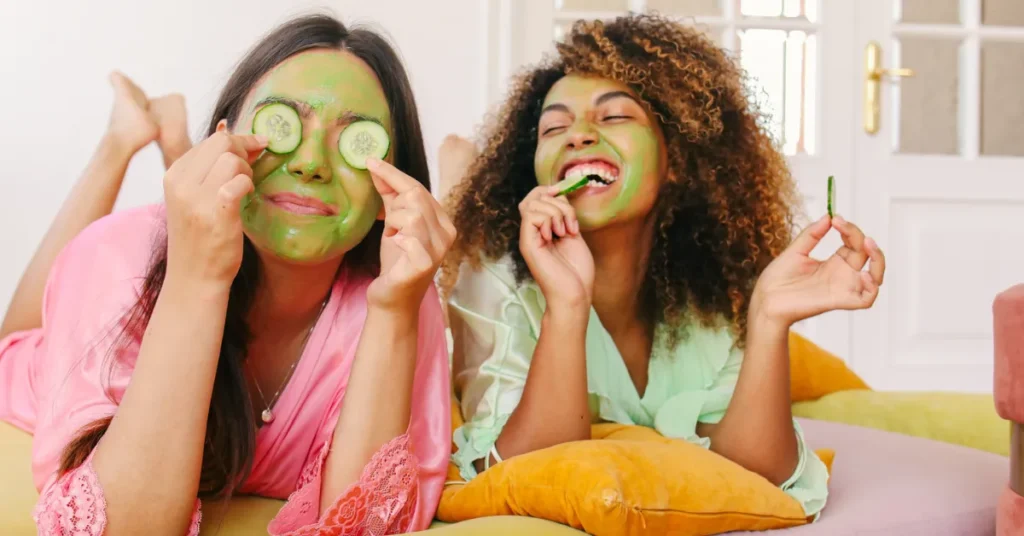
The Mindful Beauty Movement
One of the most significant trends in beauty self-care is the integration of mindfulness practices. Mindful beauty transforms your routine from a rushed necessity into a therapeutic ritual. This approach involves:
Creating Sacred Space
Designate a specific area for your beauty routine—even if it’s just a corner of your bathroom. Keep this space clean, organized, and filled with products that bring you joy.
Sensory Engagement
Pay attention to textures, scents, and sensations as you apply products. The cooling feel of a jade roller, the luxurious texture of a face oil, or the refreshing scent of a cleanser can all contribute to a meditative experience.
Intentional Breathing
Incorporate deep breathing exercises while performing your routine. This simple practice can significantly reduce stress hormones and promote relaxation.
Gratitude Practice
Use this time to practice gratitude—for your body, your health, and the opportunity to care for yourself. This mental shift can transform a mundane routine into a powerful self-love practice.
Holistic Wellness Integration
The 2024 beauty landscape has embraced a truly holistic approach that recognizes beauty as an extension of overall wellness. This means considering factors beyond topical treatments:
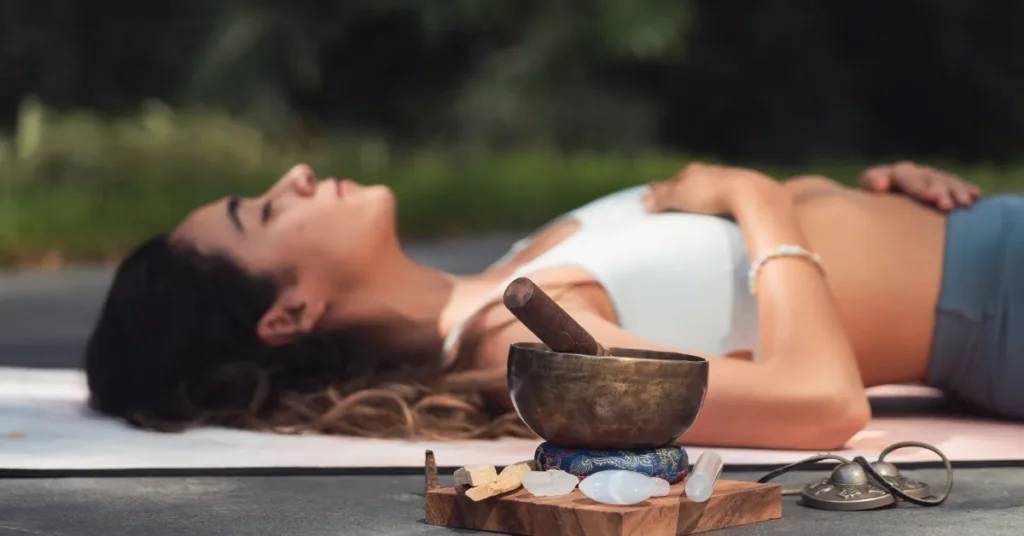
Nutrition and Hydration
What you put into your body directly affects your skin’s appearance. Focus on antioxidant-rich foods, adequate water intake, and nutrients that support skin health like omega-3 fatty acids, vitamin E, and zinc.
Sleep Quality
Your skin’s repair processes are most active during sleep. Prioritize 7-9 hours of quality sleep, consider silk pillowcases to reduce friction, and establish a calming bedtime routine.
Stress Management
Chronic stress wreaks havoc on skin health, contributing to breakouts, premature aging, and various skin conditions. Incorporate stress-reduction techniques like meditation, yoga, or regular exercise into your routine.
Movement and Circulation
Regular exercise increases blood flow, delivering oxygen and nutrients to skin cells while helping to flush out toxins. Even gentle activities like walking or stretching can benefit your complexion.
Customizing Your Routine
The most effective beauty self-care routine is one that’s tailored to your unique needs, lifestyle, and preferences. Consider these factors when building your personalized approach:
Skin Type and Concerns
Understanding whether you have oily, dry, combination, or sensitive skin helps guide product selection. Additionally, identify your primary concerns—whether that’s acne, aging, hyperpigmentation, or sensitivity.
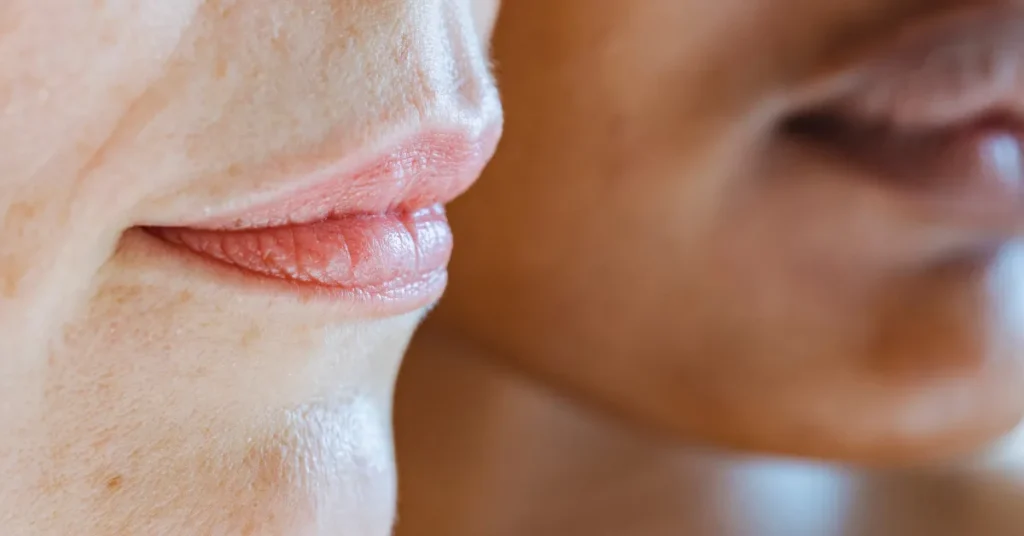
Lifestyle Factors
Your routine should fit realistically into your life. If you’re always rushing in the morning, focus on a streamlined AM routine and save more intensive treatments for evening.
Budget Considerations
Effective self-care doesn’t require expensive products. Focus on key ingredients and formulations rather than brand names, and remember that consistency matters more than cost.
Seasonal Adjustments
Your skin’s needs change with the seasons. You might need richer moisturizers in winter and lighter formulations in summer, or additional sun protection during peak UV months.
The Psychology of Self-Care Rituals
Beauty self-care routines serve as powerful psychological anchors that provide structure, comfort, and a sense of control in our often chaotic lives. These rituals can be particularly beneficial for mental health, offering:
Routine and Stability
Having consistent daily rituals creates a sense of normalcy and control, which can be especially valuable during stressful periods.
Mindfulness Practice
The repetitive, focused nature of skincare routines naturally promotes mindfulness, helping to quiet racing thoughts and center your attention on the present moment.
Self-Compassion
Taking time to care for yourself sends a powerful message that you’re worthy of attention and care. This practice can help combat negative self-talk and build self-esteem.
Transition Rituals
Morning and evening routines serve as transitional markers, helping your brain shift between sleep and wake states or work and rest modes.
Emerging Trends and Innovations
The beauty self-care landscape continues to evolve, with several key trends shaping the future:
Personalized Beauty
Advanced diagnostics and AI-powered skin analysis are making truly customized skincare more accessible, allowing for routines tailored to your specific genetic makeup and environmental factors.
Sustainable Practices
Eco-conscious beauty focuses on sustainable packaging, waterless formulations, and ethically sourced ingredients, allowing you to care for yourself while caring for the planet.
Technology Integration
Smart beauty devices, app-guided routines, and biometric tracking are making it easier to monitor progress and optimize your self-care practices.
Inclusive Wellness
The beauty industry is increasingly recognizing that effective self-care looks different for everyone, with products and routines designed for diverse skin tones, types, and cultural preferences.
Assess your current self-care routine
The first step in creating a personalized wellness routine is to assess your current self-care habits. Take a moment to reflect on the following questions:
- How often do you engage in activities that promote relaxation and stress relief?
- Are you getting enough sleep each night?
- Do you have a balanced diet, and are you staying hydrated?
- Are you making time for physical activity?
- Do you engage in activities that nurture your emotional and spiritual well-being?
Identifying areas where your self-care routine may be lacking will help you determine which aspects of your wellness need more attention.
Set realistic goals
Once you’ve assessed your current self-care habits, set realistic goals for improvement. It’s important to be kind to yourself and set achievable objectives. For example, if you’re struggling to make time for physical activity, you might set a goal to exercise for 20 minutes, three times a week. As you become more consistent with your routine, you can gradually increase the duration and frequency of your workouts.
Prioritize physical well-being
Physical well-being is a crucial aspect of self-care. Incorporate regular exercise into your routine, aiming for at least 150 minutes of moderate aerobic activity or 75 minutes of vigorous aerobic activity each week. Additionally, engage in strength training exercises at least twice a week to maintain muscle mass and bone density.
Pay attention to your diet, making sure to consume a variety of nutrient-dense foods, including fruits, vegetables, whole grains, lean proteins, and healthy fats. Stay hydrated by drinking plenty of water throughout the day, aiming for at least eight glasses.
Nurture your emotional health
Emotional self-care is just as important as physical well-being. To nurture your emotional health, practice awareness techniques such as meditation, deep breathing exercises, or yoga. These activities can help reduce stress, increase self-awareness, and promote emotional resilience.
Cultivate positive relationships by spending time with friends and family members who uplift and support you. Engage in activities that bring you joy, such as hobbies, creative pursuits, or volunteering for a cause that you’re passionate about.
Foster spiritual well-being
Spiritual self-care is about connecting with your inner self and finding meaning in your life. This may involve engaging in religious or spiritual practices, such as prayer, meditation, or attending services. You may also find solace in nature, journaling, or exploring various forms of artistic expression.
Establish a self-care routine
Now that you have a clearer understanding of your self-care needs, create a daily or weekly routine that incorporates activities that promote physical, emotional, and spiritual well-being. Be flexible and open to adjusting your routine as your needs and circumstances change.
Building Consistency and Long-Term Success
The key to a successful beauty self-care routine lies not in perfection, but in consistency and adaptability. Here are strategies for maintaining your practice:
Start Small
Begin with a basic three-step routine (cleanse, moisturize, protect) and gradually add elements as they become habitual.
Track Your Progress
Keep a simple journal noting how your skin looks and feels, what products you’re using, and any lifestyle factors that might be influencing your results.
Listen to Your Skin
Pay attention to how your skin responds to different products and adjust accordingly. What works for others may not work for you, and that’s perfectly normal.
Be Patient
Skin cell turnover takes approximately 28 days, so give new products and routines at least a month before evaluating their effectiveness.
Embrace Flexibility
Life happens, and there will be days when your full routine isn’t possible. Having a simplified backup plan helps maintain consistency without creating guilt or stress.
The Ripple Effect of Self-Care
When we invest in beauty self-care routines, the benefits extend far beyond improved skin. Regular self-care practices have been shown to improve relationships, increase productivity, and enhance overall life satisfaction. By prioritizing your well-being, you’re better equipped to show up for others and handle life’s challenges with greater resilience.
How to keep your skin healthy according to our skin expert Dr Jisha
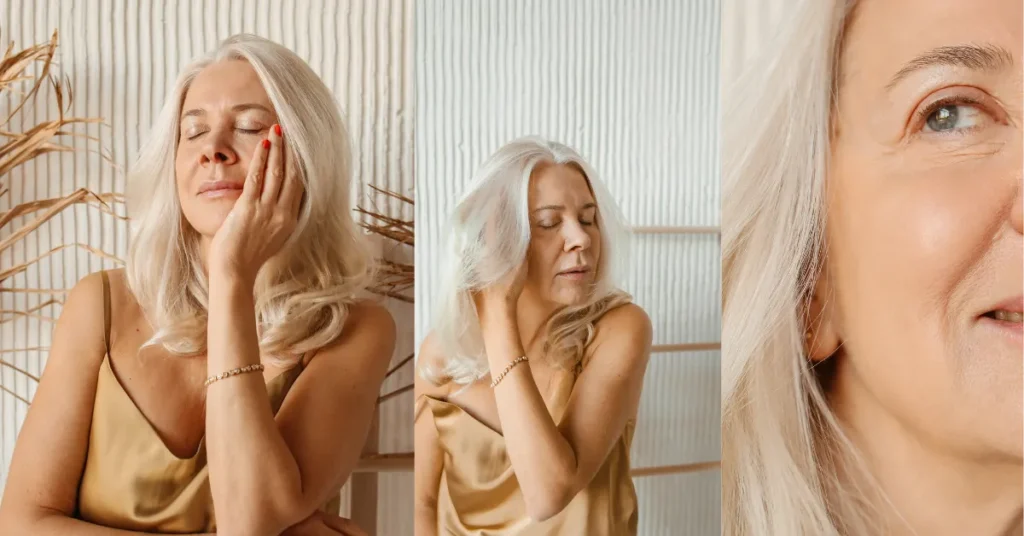
We are what we eat
The food we eat nourishes our bodies. The quality of our skin is significantly dependant on the kind of food we eat. Hence, food should be eaten for your nourishment and wellbeing, rather than just as a response to hunger and taste.
Our mind is powerful.
The connection between the skin and the mind exists! It is proven that stress, depression, anxiety, and other psychological conditions can contribute to a host of skin diseases, including acne. “The skin and the central nervous system are intertwined,” says Dr Adam Friedman, director of dermatologic research at Montefiore Medical Centre in New York. Many a time, the root cause of your skin issues can stem from your mental health. Try to manage and reduce the stress levels in your life with things like yoga, meditation and therapy.
Make lifestyle corrections
Lifestyle changes can play a huge role in your overall health and their effect on your skin. Inculcating healthy practices like a decent exercise routine, a balanced and nutritious diet, reduced lethargy and surrounding yourself with positive things like music and arts can enhance your body, mind, spirit and skin!
Shut down once in a while
Stop being ‘busy’ all the time. Take some time off your routine. Invest time in sports, adopt the reading habit, or spend some quality time with your loved ones. Allow your brain to reset with frequent breaks. By doing so, you’ll see a positive change not just in your skin’s health but in your overall health too.
Be content
A sense of contentment positively impacts your skin’s health. Happy people tend to have healthier skin and age slower. Each thought, each experience, and each reaction can have a physiological impact on your skin. Negative emotions lead to disturbance in the equilibrium of the body’s functioning. The world is a tough place to live in today. So, don’t hesitate to reach out for help to a friend, a loved one or a therapist if you are struggling with maintaining a balance.
The silver lining
All in all, when the mind and body are healthy, the difference it makes in your skin is evident enough even for others to notice. Take care of your body and mind, and they will do it right back for you. Hold on to the things that matter the most in life.
Conclusion: Your Journey to Radiant Wellness
Creating an effective beauty self-care routine is ultimately about much more than achieving perfect skin—it’s about cultivating a practice of self-love, mindfulness, and intentional living. Whether your routine takes five minutes or fifty, the most important element is the intention you bring to it.
Remember that beauty and wellness are deeply personal journeys. What matters most is finding practices that make you feel nourished, confident, and authentically yourself. As you develop your routine, be patient with the process, celebrate small victories, and trust that the time you invest in caring for yourself is never time wasted.

